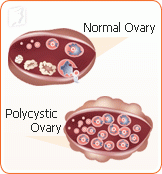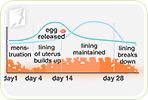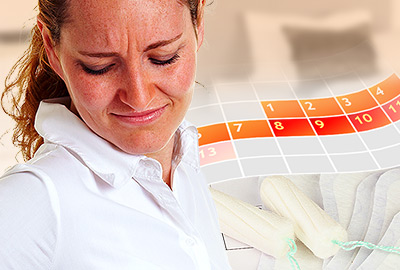Excessive menstrual bleeding is not uncommon. However, these symptoms often worsen experiencing a drastic change in hormone levels, such as during puberty or menopause.
What Causes Excessive Menstrual Bleeding?

Excessive menstrual bleeding can be an indication of many things. While irregular periods are a normal symptom of menopause, it's best to speak to a doctor to determine whether or not there is an underlying medical condition. The following conditions are some of the most common causes of excessive bleeding.
Polycystic ovary syndrome (PCOS)
Polycystic ovary syndrome is a hormonal disorder that causes abnormal menstrual bleeding. Women with PCOS have enlarged ovaries with several small cysts on the edge. The condition can cause irregular menstrual cycles and make it hard to become pregnant. There's no cure, but it can be managed by maintaining a healthy weight and hormone treatment.
Some of the symptoms of PCOS include:
- Weight gain
- Hair growth on the face and legs
- Acne
Intrauterine device (IUD)

This form of contraception sits inside the uterus to help prevent pregnancy. It can cause excessive bleeding in some cases. Although the reasons for this remain unknown, IUDs are generally not dangerous and are effective contraceptive devices.
Perimenopause
Perimenopause is a natural stage in a woman's life rather than a medical condition. Women approaching menopause may experience abnormal bleeding. The average age of a perimenopausal woman is between 45 and 55. Hormone levels fluctuate, causing irregular periods. Periods tend to come less frequently, and when they do, are heavier because of the buildup of uterus lining.
Pelvic inflammatory disease (PID)
Pelvic inflammatory disease describes the inflammation of the uterus, fallopian tubes, and ovaries. It's often caused by bacterial diseases, such as gonorrhea, chlamydia, or other sexually transmitted infections. Symptoms of pelvic inflammatory disease include:
- Weakness and fever
- Pain in the lower abdomen
- Abnormal, heavy, and excessive menstrual bleeding
- Fever
If you believe this bleeding may be due to pelvic inflammatory disease, visit your medical practitioner immediately.
More Information
Abnormal, heavy, and excessive menstrual bleeding does not have to interrupt your daily activities. With the guidance of your doctor, it can be treated. Click the following link for more information on treating abnormal, heavy, and excessive menstrual bleeding.
Sources
- Hutchinson, Susan M.D. "The Stages of a Woman's Life: Menstruation, Pregnancy, Nursing, Perimenopause, Menopause". November 2007.
- Love, Susan M.D. Menopause and Hormone Book. New York: Three Rivers Press, 2003.
- BMJ Group. "Menopause: What is it?" Patient Leaflet. 2007



